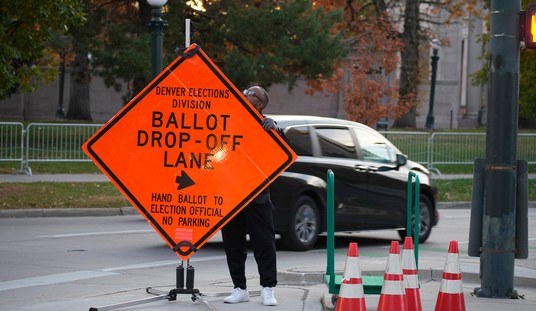Americans this summer will shell out $4 a gallon at the pump, with those premiums spreading to everything that moves on roads, ships, air, or rails, or is made of hydrocarbons.
That is an awesome cost when affixed to melting confidence in Wall Street, while Washington extends unlimited credit to bad management and leaves U.S. taxpayers holding the bag for the mess these folks created.
To wrap this into a perfect storm, the U.S. dollar, the mother of all reserve currencies, is falling like a rock. Chinese, Japanese, Korean, and Arab big pockets are already abandoning the greenback as a savings vehicle. When more of them do, catastrophe shall truly hit.
We cannot do much about many of these problems, but oil stands out as the one boil in this fever that can be lanced. Indeed this perfect storm can be eased considerably with one instant rescue: more oil right now.
Oil prices are insane and not possible to justify by demand or supply. They zoomed from $10 a barrel in 2001 to $50 a barrel in 2007 and over $110 a barrel in early 2008! By any historic measure, this is breathtakingly unjustified, especially as there is no shortage of the stuff.
The easiest measure of world oil is “proven reserves,” which in industry jargon means oil we know to be immediately available in the ground. The aggregate of these proven reserves stands at 1.2 trillion barrels, according to oil journals data and company statistics. Sixty percent of that lies in the Middle East. A far more astonishing number is that two protectorates of the U.S. — Saudi Arabia and Iraq — own 35% of it.
According to their own figures, Saudis sit atop 260 billion barrels of proven oil. Yet they are only pumping under 9 million barrels a day of that now. Iraq claims to have similar reserves, but given its wars, strife, and absence of exploration, it cannot be relied upon now. This leaves our Saudi allies and two other mini-states of the Gulf who are also U.S. clients — the UAE and Kuwait — with readily available oil to pump.
Indeed, President Bush dispatched Vice President Dick Cheney on a trip to basically ask where is the stuff when we need it? The problem is that Cheney is disposed to plead where he should demand and explain.
The Saudi economy, as well as those of the UAE and Kuwait, depends on a single commodity that in turn relies on U.S. and world economies. The hubris experienced from $110 a barrel oil can evaporate just as quickly as the Bear Sterns share value, which dropped from $170 to $2 a share on Saturday when there was a run on the bank. Inversely, expensive oil has in the past been abandoned by depressed world economies — an occurrence we saw in the 70s when prices collapsed to as low as $8 a barrel.
Here comes the crunch of what the vice president needs to explain to the king. Saudis have for years bragged of their so-called “incremental” capacity, which in oil parlance is tantamount to bragging about size. Saudi oil ministers do not tire of reminding every one else in OPEC that their “sustainable” production is bigger, standing at 11 million barrels a day. So the question is: where is the difference between the nine they are pumping and the 11 they have?
Or put by Cheney to King Abdullah: where is your quid for our quo, your highness?
Mr. Cheney is uniquely positioned to remind King Abdullah that he was defense secretary when George Bush Sr. mobilized 400,000 U.S. troops to save the Saudis’ hide from Saddam Hussein’s claws, when having taken Kuwait in 1990 he was getting ready to swallow Saudi Arabia.
The Saudis have to come clean. Do they prefer hogging billions of dollars without regard to the consequences or do they want to play a responsible role on the world stage? They cannot have it both ways. The same applies to Kuwait, whom the U.S. rescued in 1991, and the UAE, which lives under U.S. defense wings. We need the extra oil — now.
Put ever more simply: we can cut that oil price in half, literally, with a mere statement of intention by these allies that more oil shall be disgorged onto world markets this year. When the oil moves onto tankers, we will be looking at $40 a barrel, or substantially less.
This, unlike wobbly Wall Street, is a sure bet.
Youssef M. Ibrahim, a former Middle East correspondent for the New York Times and Energy Editor of the Wall Street Journal, is a freelance writer and Mideast political risk consultant based in New York.









Join the conversation as a VIP Member